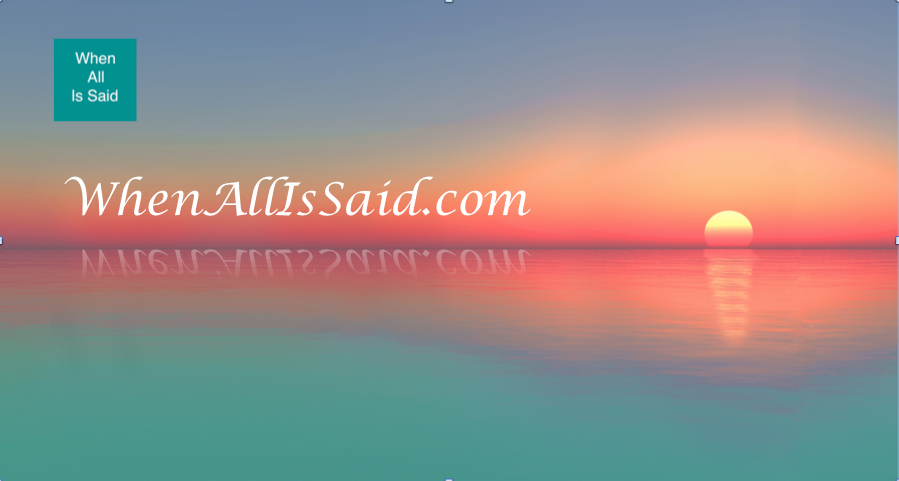 I happen to be a lifelong sailor. I took to the sport from the start as if it was what I was born to do, just the way they depict in Disney movies. I’ve owned more sailboats than cars and am most at ease with the motion of a boat under my feet. A friend once told me that he never quite “got me” until he saw me sailing.
I happen to be a lifelong sailor. I took to the sport from the start as if it was what I was born to do, just the way they depict in Disney movies. I’ve owned more sailboats than cars and am most at ease with the motion of a boat under my feet. A friend once told me that he never quite “got me” until he saw me sailing.
One particularly good sailing website is Scuttlebutt Sailing News. The site recently featured an article you should catch, Nine Everyday Things a Sailor is Better At. Item number two is the best of the lot: walking straight when drunk. It should almost go without saying.
There is an ocean of sailing trivia to draw from. One fact in keeping with the note above is that sailing is one of only three sports for which drinking beer is considered part of training. The only other two are bowling and rugby, and there is some doubt as to the former being a sport. The phrase “three sheets to the wind” originally described a sailing boat out of control (sheets meaning the lines that control sails). That said, a sailor will tell you there are no “ropes” on a boat, only lines with varying names based on their use.
Men, and sometimes women, often wear blazers, but the word first referred to the jackets worn by sailors aboard the H.M.S. Blazer. A church pennant is the only flag authorized to fly above a ship’s national ensign, but only during a religious service, when one might well be wearing a blazer.
A crows’ nest is a straightforward term, but “as the crow flies” reflects the fact that crows abhor the water and will fly straight to land. To fathom something today is to grasp it in your mind. Originally, however, it was the distance between the outstretched arms of a man, or what we now define as six feet.
Sailors are supersticious about setting sail on a Friday. To prove them wrong, the Brits named a boat the H.M.S. Friday, placed her under a captain of the same name, christened and set her to sea on a Friday. She was never heard from again.
The term “starboard”, representing what we think of as right, grew originally from an Old English term meaning “steering oar”. In ancient times boats were steered by an oar or board attached to the side of the boat. Since most sailors were right-handed, it was attached to the right side of the boat. It was not until the Common Era that boats began to use the more efficient stern mounted rudders. The first recorded example is from China, but it seemed to appear quickly around the world, without any apparent sharing of knowledge.
Perhaps my favorite nautical term is the knot. In order to measure speed at sea, sailors would toss a floating wood chip, attached to a line, overboard. Knots were spaced on the line and the number of knots that “payed out” in the time for a small hourglass (or before that a verse of a chanty) to empty became the number of knots, or speed, of the boat. As measurements became more precise, the term “knot” was retained, but was refined to mean the time taken to pass one nautical mile (1.15 mile as we know it in the US). A nautical mile itself is one “minute” of the distance between meridians of longitude along the globe. If I have lost you, my point is that sailors grow more precise, but they never forget the heritage that led them there.
One last bit of trivia. The “bitter end” originally referred to the end of a line that was secured around a bit, such as might secure the end of an anchor rode (notice that it too is not a rope). It was indeed a bitter end if the anchor was lost because it was not secured to the boat.

 The power of symbols to crystalize a sense of commonality can be extraordinary. The Eiffel Tower was intended to be a temporary structure, but now universally represents the spirit of France. Queen Elizabeth is the living embodiment of Great Britain, as will be her heirs.
The power of symbols to crystalize a sense of commonality can be extraordinary. The Eiffel Tower was intended to be a temporary structure, but now universally represents the spirit of France. Queen Elizabeth is the living embodiment of Great Britain, as will be her heirs.








 John Lewis is in the news today, and I will not comment on the merits of the conversation he has initiated. I feel a deep need, however, to say that with his honorable life and service, John Lewis has earned the right to speak and to be heard. If we refuse to listen and discuss, we have surrendered a generation of progress. The irony of Schweitzer and Wallace sharing this day, now with Lewis, deserves recognition and contemplation.
John Lewis is in the news today, and I will not comment on the merits of the conversation he has initiated. I feel a deep need, however, to say that with his honorable life and service, John Lewis has earned the right to speak and to be heard. If we refuse to listen and discuss, we have surrendered a generation of progress. The irony of Schweitzer and Wallace sharing this day, now with Lewis, deserves recognition and contemplation.